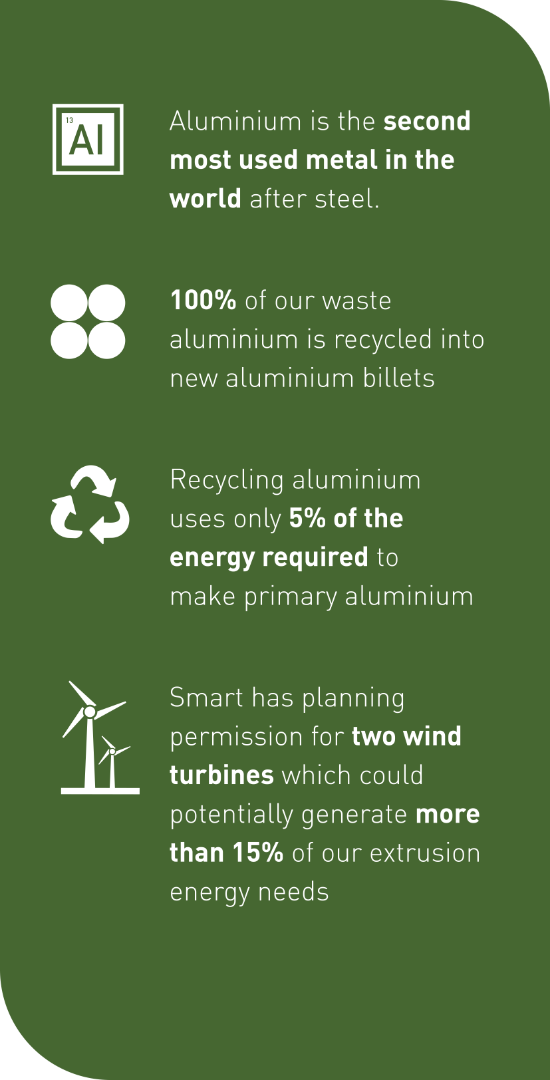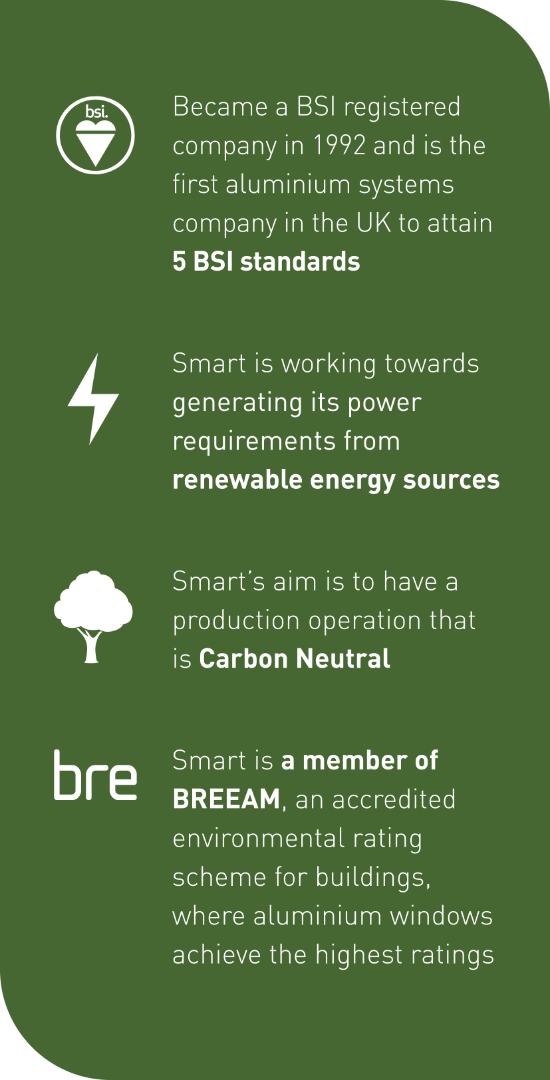Maximising Quality, Minimising Impact

From our relocation to a green field site in 2005, and three subsequent major site expansions (in 2011, 2015 and 2017), we have always considered our potential impact on the local environment. At every stage of our expansion programme, we undertook extensive reviews to assess all aspects of the works, including the impact on local wildlife and its habitat, the safe capture of waste materials and the effect our additional activities would have on the local community.
Environmental considerations have remained central to our planning, and in 2011 we achieved ISO 14001:2004 Environmental Management Systems certification, to help formalise our processes and procedures.
As an ISO 14001 company, we regularly re-evaluate our working practices, ensuring we continually work to minimise the impact of our activities on the environment. As a result, we continue to invest in efficient machinery, effective environmental management systems and waste capture and recycling systems, as well as the use of sustainable power generation.
Environmental Product Declaration - EPD
Our Environmental Product Declaration is available for download below.
Responsible Sourcing - BES 6001 Certification
Our BES6001 Certification is available for download below.
Responsible Sourcing - Report
Our annual Responsible Sourcing Report is available for download below.
With public authorities, specifiers and architects all increasingly focusing on sustainable development, we felt it important to demonstrate our commitment to responsible sourcing and sustainable construction and in 2017, we achieved the BES 6001 standard for responsible sourcing. BES 6001 was established by the Building Research Establishment (BRE), to enable manufacturers to ensure, and then prove, that their products are made with responsibly-sourced constituent materials. The standard provides an approach based on governance, supply chain and community interaction, with a focus on environmental performance improvements.
In achieving the BRE’s standard, we recognise that how and from whom we buy our raw materials has a significant impact on the broader environment. By purchasing from reputable suppliers who adopt responsible practices, we hope to stimulate demand for socially- and environmentally-preferable products.
Energy Use and Management - ISO 50001

Energy management is a crucial element of our operations and in 2015 we achieved ISO 50001:2011 certification. This standard makes it easier for organisations to integrate energy management into their quality and environmental management systems on a continuous improvement basis.
Since 2015 we have put in place a number of projects and plans to reduce our electricity and diesel consumption, improving our energy performance with respect to our overall output.
Working Towards Carbon Neutrality
Our aim is for our production operation to be carbon neutral, a target we plan to achieve through a combination of continued investment in efficient machinery, effective environmental management systems, waste capture and recycling and the use of sustainable power generation.
As part of this goal, we are committed to generating our power requirements from renewable natural resources.
Service Life Expectency of Aluminium Windows
In accordance with BS 7543:2015 Guide to Durability of Buildings and Building Elements, Products and Components, aluminium windows can be reasonably expected to achieve a service life of 40 years or more under normal operating and maintenance conditions. This projection is supported by the inherent durability of the primary materials and finishes used in their construction:
• Aluminium profiles are highly resistant to corrosion, warping, and structural degradation, particularly when thermally broken and properly drained.
• Powder-coated finishes, when applied in accordance with relevant quality standards (e.g. Qualicoat), provide long-term protection.
• Glazing systems and gaskets, when specified and maintained appropriately, contribute to the overall integrity and thermal performance of the unit.
BS 7543 provides a framework for service life planning and includes default indicative lifespans for building components. Aluminium windows align with the upper range of these expectations for windows and doors.
Further support is found in the BRE Green Guide to Specification, which assesses environmental performance across life cycles. Aluminium powder-coated windows have achieved ratings of A or A+ depending on mass and application, reflecting both their long service life and recyclability. These ratings are underpinned by life cycle assessments that typically assume a design life of 40 years or more for aluminium window systems. This service life estimate assumes routine maintenance, including periodic cleaning, inspection of seals, and lubrication of moving parts. Where such practices are followed, aluminium windows represent a robust, low-maintenance, and sustainable solution for long-term building performance.
